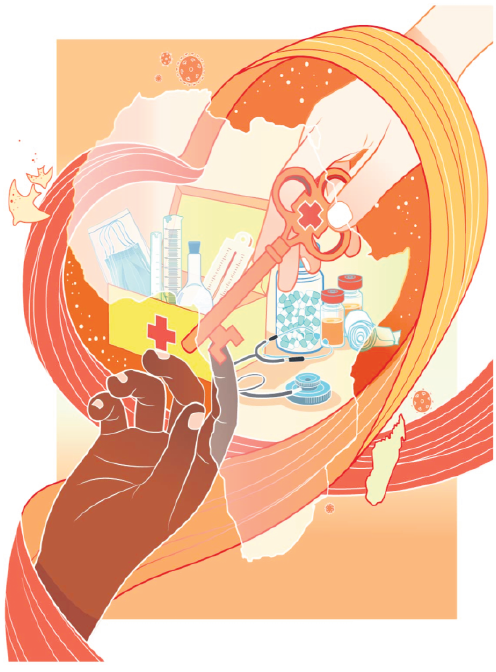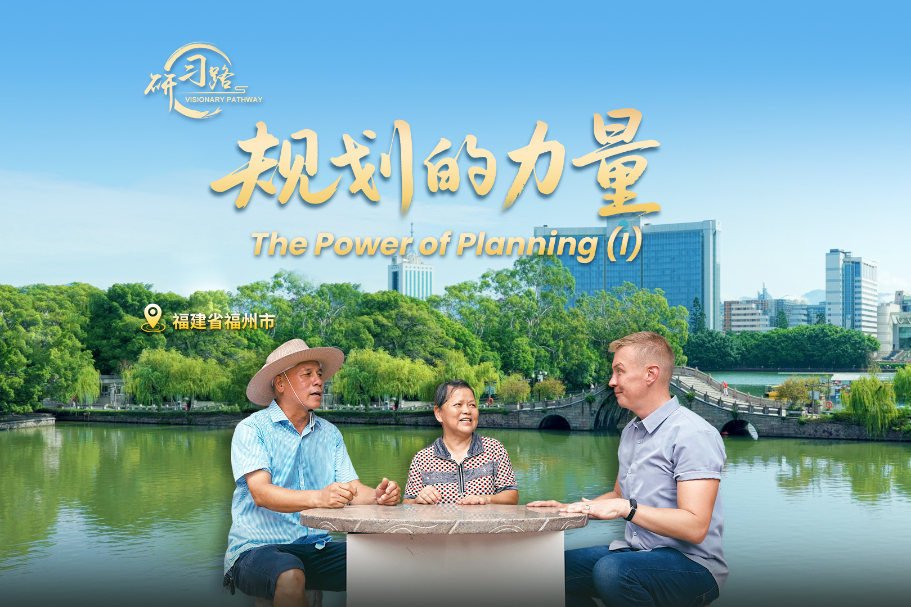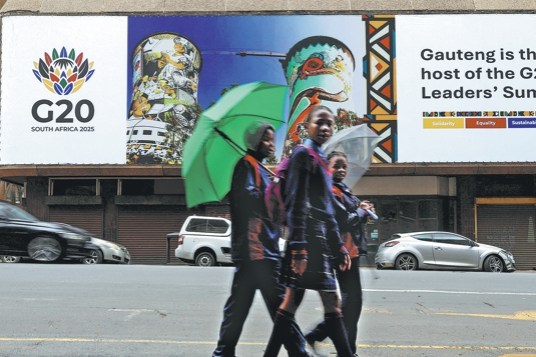Helping Africa weather the pandemic


Beijing should help the continent recover from the impact of COVID-19 by strengthening Sino-African partnership
By the end of September, the total number of confirmed novel coronavirus cases in Africa was close to 1.5 million, putting enormous pressure on the continent's already strained public health systems. The pandemic is also posing serious economic and social challenges to Africa's envisaged inclusive development.
The pandemic has impacted the African economy on three fronts.
First, foreign investment and trade have declined. Except for China, Africa's main trade partners and investors, especially emerging economies such as India and Brazil, are still struggling to contain the outbreak at home, making it difficult for them to maintain, let alone increase, the scale of trade and investment with Africa.
The United Nations Conference on Trade and Development has said Africa's foreign direct investment in 2020 is set to drop 25-40 percent, with the scale of foreign trade expected to shrink correspondingly.
Second, Africa has received insufficient development aid. While the relatively weak health and social welfare systems of African countries need more international aid to deal with the pandemic, traditional donors from the European Union and the Organization for Economic Cooperation and Development are reluctant to increase aid to Africa because of the pandemic-induced recession in their own economies.
According to the Africa Centres for Disease Control and Prevention, the need for anti-pandemic financial and material support has almost doubled in all African countries, causing a gap between aid given and needed.
And third, African countries' domestic and intra-African trade has declined drastically. Since the outbreak of the novel coronavirus, most African countries have restricted, if not banned, international travel, imposed social distancing measures and shut down markets. South Africa, Senegal, Cote d'Ivoire and Kenya have imposed curfews on some cities, or even ordered a total lockdown across the country. Such emergency measures have restricted the free movement of people and goods, leading to a fall in trade within and among African countries.
Based on these facts, the African Development Bank has predicted that Africa's GDP could lose $173.1 billion in 2020 and $236.7 billion in 2021. As a result, the debt burden of more African countries could increase.
Vulnerable to external shocks, Africa's commodity-driven and raw material export-oriented growth cannot ensure sustainable and inclusive development. In fact, Africa's GDP growth in the past two decades has largely been driven by domestic demand, which contributes nearly 70 percent to GDP growth, and the exports of raw materials to the global market, which accounts for nearly 90 percent of its total exports, rather than an increase in productivity which is crucial for creating more and better jobs and improving people's well-being.
Against this backdrop, Africa's economic slowdown is turning into a potential crisis on the social front. The UN has forecast that income and job losses because of the pandemic will push 30 million more people into poverty and the number of people facing acute food insecurity could increase significantly, mostly in poor African countries. The anti-lockdown protests, xenophobic mass demonstrations and frequent violent crimes in South Africa, Nigeria, Kenya and Zimbabwe threaten to rupture local social fabric.
It is therefore clear that the pandemic is more than just a public health emergency for Africa, and economic recovery is one of the best ways to deal with the aftermath of the crisis. As Africa's traditional partner, China has not only been its largest trade partner for 10 consecutive years, but also the most active player in Africa's modernization under the framework of the Forum on China-Africa Cooperation and the synergy between the Belt and Road Initiative and the African Union's Agenda 2063.
China's domestic economic restructuring and industrial upgrading driven by supply-side structural reform in recent years have laid a solid foundation for resuming production and helping the economy emerge from the shock of the pandemic by following a "dual circulation" development pattern, which highlights the significance of a comprehensive economic strategy and a functional industrial structure for steady development.
To help Africa weather the pandemic shock, China should, apart from continuing to provide medical support, attach more importance to cooperation with African countries and thus help them revive their economies and overcome the effects of the outbreak.
In the short term, China should support African countries' governments to contain the further spread of the coronavirus and mitigate their economic downturn. China should not only maintain (and increase) financing, equipment, technology and personnel support to Africa but also increase the supply of medicines and medical equipment, build strong emergency relief mechanisms, especially in low-income countries, to help the continent weather the COVID-19 storm. While continuing to increase imports from Africa, China should take measures to further reduce the cost of exporting essential supplies to Africa, and help African countries prioritize localized production of basic medical materials and protective equipment.
In the middle term, China should welcome diversified participation of African societies in the China-Africa partnership. Although small and medium-sized enterprises are dynamic players providing most employment opportunities, they are particularly vulnerable to external shocks. While encouraging African governments to channel liquidity to these in their fiscal and monetary policies, China should also expand its reach in Africa's local markets by working with more diversified local players.
In the long term, China should help the African countries to restructure and upgrade their economies through digitization. Under the frameworks of the African Continental Free Trade Area and the African Union's productive transformation agenda, Industry 4.0 should be about strengthening Sino-African trade ties. The emergence of e-commerce and development of the intelligent transportation system will provide Africa with the opportunity of "corner overtaking" in the new round of the industrial revolution. A more diversified, value-adding and knowledge-intensive industrial structure driven by digitization will make the African economy more resilient and competitive, and reduce its over-dependence on the inflow of foreign investment and exports of raw materials to the global market.
The author is a deputy director of the security studies division at the China-Africa Institute. The author contributed this article to China Watch, a think tank powered by China Daily. The views do not necessarily reflect those of China Daily.

































